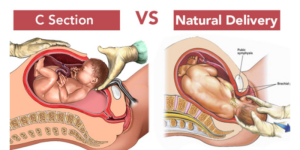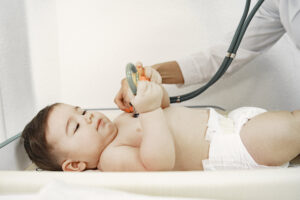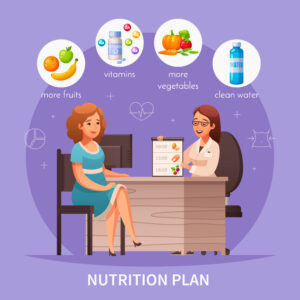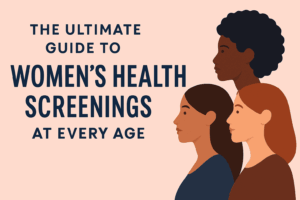Vaccines are among the best advances in global health and development. For over two centuries, vaccines have safely reduced the scourge of diseases like polio, measles and smallpox, helping children get older healthy and happy. They save quite five lives every minute – preventing up to 3 million deaths a year, even before the arrival of COVID-19.
Why are vaccines important?
Vaccines are important because they assist protect us and people around us from preventable diseases like tetanus, HPV, polio, measles, meningitis and pertussis. How? By helping our bodies create immunity – which is that the body’s way of preventing disease.
Why vaccinations are important for children
Childhood vaccinations are so important because young immune systems are more susceptible to diseases and illnesses. If your child is exposed to a disease like measles for instance, their system might not be strong enough to fight it off. And now that travel is simpler and more common than ever, there’s an increased risk of exposure to diseases that are more prevalent outside of the us .
Vaccines are made with disease antigens, which trigger your child’s system to supply antibodies and develop immunity – without getting sick.
What diseases do vaccines protect against?
Immunizing your baby with vaccines protects against serious diseases like measles, pertussis, polio, meningococcal disease, tetanus, rotavirus, hepatitis A, hepatitis B , chickenpox, influenza, and more. Vaccines won’t protect children from minor illnesses like colds, but they will keep children safe from many serious diseases.
I don’t know anybody who has had these diseases. Why does my baby need these vaccines?
While a couple of those diseases have virtually disappeared due to vaccination, reported cases of individuals with diseases like measles and pertussis have been on the rise lately. albeit some diseases do completely disappear within the U.S., they’re common in other parts of the planet and are just
a plane ride off . If we stop vaccinating against these diseases, many more people will become infected. Vaccinating your child will keep him or her safe. Are there better ways to protect my baby against these diseases?
No. Breastfeeding has many benefits and should offer some temporary immunity surely illnesses, but experts agree that it’s not an efficient means of protecting a toddler from the precise diseases prevented by vaccines. Likewise, vitamins won’t protect against the bacteria and viruses that cause these serious diseases. Chiropractic remedies, naturopathy, and homeopathy are totally ineffective in preventing vaccine-preventable diseases.
Some parents think that getting the “natural” disease is preferable to “artificial” vaccination, resulting in a “natural” immunity. Some even arrange chickenpox “parties” to make sure their child gets infected. It’s true that for a few diseases, getting infected will cause immunity, but the worth purchased natural disease
can include paralysis, brain injury, cancer of the liver , deafness, blindness, or even
death. once you consider the seriousness of those risks, vaccination is definitely the higher choice.
Are vaccines safe?
Vaccines are safe, and scientists continually work to form sure they become even safer. Every vaccine undergoes extensive testing before being licensed,and vaccine safety continues to be monitored as long as a vaccine is in use. Most side effects from vaccination are minor, like soreness where the injection was given or a low-grade fever. These side effects don’t last long and are treatable. Serious reactions are very rare. the small risk of a significant reaction from vaccination has got to be weighed against the very real risk of getting a dangerous
vaccine-preventable disease.
How many times do I need to bring my baby in for vaccinations?
At least five visits are needed before age two, but the visits are often timed to coincide with well-child check-ups.
Your baby should get the primary vaccine (hepatitis B) at birth, while still in the hospital. Multiple visits during
the first two years are necessary because there are 14 diseases your baby are often protected against, and
most require two or more doses of vaccine for the simplest protection..
How do I know when to take my baby in for vaccinations?
Your healthcare provider should allow you to know when subsequent doses are due. If you’re unsure , call your healthcare provider’s office to seek out out when your
child should return for vaccinations. Doses can’t be given too approximate or immunity doesn’t have time to create up. On the opposite hand, you don’t want to delay your child’s vaccinations and obtain not on time because during
this time, your child remains unprotected against these serious diseases. How do I keep track of my baby’s vaccinations?
In many medical practices, your child’s immunization record is entered into an electronic record-keeping system. It’s important that you simply keep home records too, so make certain to invite a private record card or a printed copy of
your child’s vaccinations. If you don’t receive it, make certain to ask. Bring your copy of the record to all or any medical appointments. Whenever your child receives a vaccine, confirm your copy gets updated. Your child will benefit by having
an accurate vaccination record throughout his or her life.












